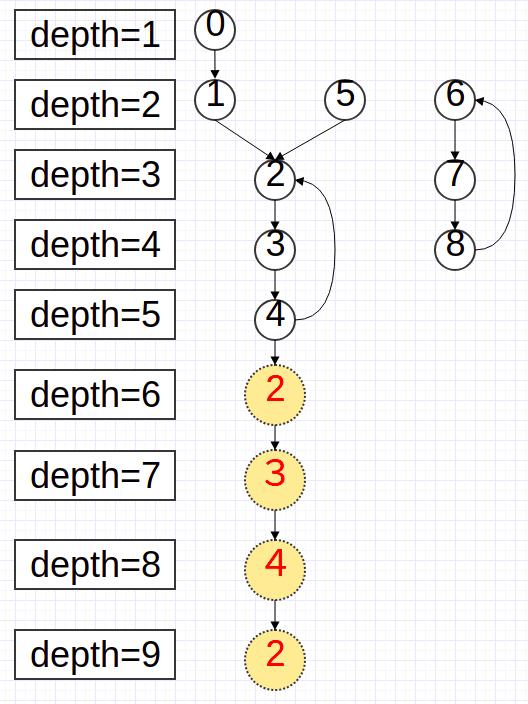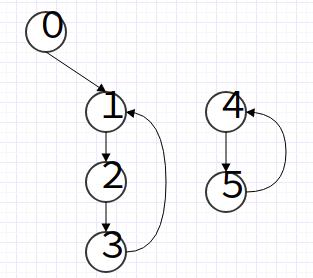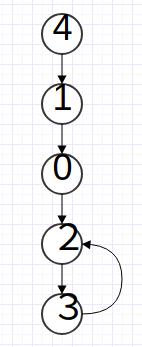problem1 link
首先枚举差值$d$,判断是否存在一个序列任意连续两个之间的差值小于$d$。
首先将数字排序,然后从小到大依次放置每一个数字。每个当前的数字有两个位置可以放,当前序列的前面或者后面。设当前序列开始末尾的两个数字为$L,R$,当前数字为$x$。
如果$x-L>d$并且$x-R>d$,那么不存在这样的序列。
如果$x-Lleq d$并且$x-Rleq d$,那么开始末尾都可以放。这时候按照贪心的思路,应该放在$L,R$小的一侧。
否则,只能放在某一侧。
problem2 link
令$f[k][t]$表示$k$个节点构成的树$T_{k}$满足$S(T_{k})$%$m=r$的最小的$S(T_{k})$。合并两棵树时有转移方程:$f[k][t]=f[x][t_{0}]+f[k-x][t_{1}]+x(n-x),t=(t_{0}+t_{1}+x(n-x))(mod)(m)$。

如果对于上图来说,集合$C$中还有的结点数为$n-5$。
那么$f[5][t]=f[3][t_{0}]+f[2][t_{1}]+3(n-3)$。其中$f[5][t]$中包含了内部5个结点任意两个之间的距离,以及每个结点到外面的$n-5$个结点的距离中到结点4的这一段距离。所以$f[5][t]$包含了以下几段:
$1leftrightarrow 3,1leftrightarrow 2,1leftrightarrow 4,1leftrightarrow 5$
$3leftrightarrow 2,3leftrightarrow 4,3leftrightarrow 5$
$2leftrightarrow 4,2leftrightarrow 5$
$4leftrightarrow 5$
$(n-5)(1leftrightarrow 4)$
$(n-5)(3leftrightarrow 4)$
$(n-5)(2leftrightarrow 4)$
$(n-5)(4leftrightarrow 4)$
$(n-5)(5leftrightarrow 4)$
problem3 link
首先定义给定的运算为$g(a,b)=a*b$,另外定义$f(x)=g(0,x)$.所以如果$g(0,0)=3 ightarrow g(3,x)=g(g(0,0),x)=g(0,g(0,x))=g(0,f(x))=f(f(x))=f^{2}(x)$。如果将给定的输入$a[0,1,..,n-1]$看作是一棵树(即如果$a[i]=j$,那么有一条$i$到$j$的有向边),那么$f^{k}(x)$表示从节点$x$向下走$k$步到达的节点。
首先假设有一棵如下的树:

令节点0 到环的距离为$m=2$,0所在的联通分量的环的大小为$c=3$。那么有对于任意的节点$x$,一定满足$f^{k}(x)=f^{k+c}(x),kgeq m+1$
所以以下两种情况是无解的:
(1)存在另外一个大小为$p$的环,但是$p$不能整除$c$。比如下图,有$(0*0)*4=g(1,4)=f^{2}(4)=4,(0*0*0*0*0)*4=g(1,4)=f^{5}(4)=5$,矛盾。

(2 存在一个节点,到达环的距离大于$m+1$.如下图。那么有$(0*0)*4=g(2,4)=0,(0*0*0*0)*4=g(2,4)=3$矛盾。

除了以上情况,都是存在解的。解的构造分两种情况:
(1)跟0不在一个联通分量中的节点$x$,有$g(x,t)=x$
(2)跟0在一个联通分量中的节点$x$,首先计算一个深度数组$d$,其中$d_{0}=1$,如果有边$i$到$j$,那么有$d_{j}=d_{i}+1$。那么$g(x,y)=f^{d_{x}}(y)$.
由此得到的转移数组$g$,满足对任意的三个数字$a,b,c$,满足$g(g(a,b),c)=g(a,g(b,c))$
分两种情况说明:
(1)$a,b,c$中前两个数字存在至少一个点跟0不在一个联通分量中,如果是$a$,那么有$g(g(a,b),c)=g(a,g(b,c))=a$,如果是$b$,那么有$g(g(a,b),c)=g(a,g(b,c))=g(a,b)=f^{d_{a}}(b)$
(2)$a,b,c$中前两个数字都跟0在一个联通分量中。那么$g(g(a,b),c)=g(a,g(b,c))=f^{d_{a}+d_{b}}(c)$.最后都会走到一个深度为$d_{a}+d_{b}+d_{c}$的节点.比如在最上面的图中,令$(a,b,c)=(1,2,5)$,那么$g(g(1,2),5)=g(4,5)=3,g(1,g(2,5))=g(1,4)=3$,可以看作是深度为$8$的节点
code for problem1
#include <algorithm>
#include <list>
#include <vector>
class FoxesOfTheRoundTable {
public:
std::vector<int> minimalDifference(const std::vector<int> &h) {
int n = static_cast<int>(h.size());
std::vector<std::pair<int, int>> a(n);
for (int i = 0; i < n; ++i) {
a[i] = {h[i], i};
}
std::sort(a.begin(), a.end());
std::list<int> result;
auto Check = [&](int kmax) {
result.clear();
result.push_back(a[0].second);
for (int i = 1; i < n; ++i) {
int first = h[result.front()];
int last = h[result.back()];
int current = a[i].first;
if ((current - first <= kmax) && (current - last) <= kmax) {
if (current - first > current - last) {
result.push_front(a[i].second);
} else {
result.push_back(a[i].second);
}
} else if (current - first <= kmax) {
result.push_front(a[i].second);
} else if (current - last <= kmax) {
result.push_back(a[i].second);
} else {
return false;
}
}
return std::abs(h[result.front()] - h[result.back()]) <= kmax;
};
for (int d = 0; d < 1000; ++d) {
if (Check(d)) {
break;
}
}
return {result.begin(), result.end()};
}
};
code for problem2
#include <vector>
class ExactTree {
public:
int getTree(int n, int m, int r) {
std::vector<std::vector<int>> f(n + 1, std::vector<int>(m, -1));
f[1][0] = 0;
for (int k = 2; k <= n; ++k) {
for (int x = 1; x < k; ++x) {
for (int t0 = 0; t0 < m; ++t0)
for (int t1 = 0; t1 < m; ++t1) {
if (f[x][t0] != -1 && f[k - x][t1] != -1) {
int r = (f[x][t0] + f[k - x][t1] + x * (n - x)) % m;
int s = f[x][t0] + f[k - x][t1] + x * (n - x);
if (f[k][r] == -1 || s < f[k][r]) {
f[k][r] = s;
}
}
}
}
}
return f[n][r];
}
};
code for problem3
#include <vector>
class MultiplicationTable {
public:
std::vector<int> getMultiplicationTable(const std::vector<int> &a) {
int n = static_cast<int>(a.size());
std::vector<int> result(n * n, -1);
auto Get = [&](int x, int y) { return result[x * n + y]; };
auto Set = [&](int x, int y, int t) { result[x * n + y] = t; };
std::vector<int> d(n, -1);
for (int x = 0, depth = 1; d[x] == -1; ++depth) {
d[x] = depth;
x = a[x];
}
bool stop = false;
while (!stop) {
bool update = false;
for (int i = 0; i < n; ++i) {
if (d[i] == -1 && d[a[i]] != -1) {
d[i] = d[a[i]] - 1;
update = true;
if (d[i] == -1) {
stop = true;
break;
}
}
}
if (!update || stop) {
break;
}
}
for (int i = 0; i < n; ++i) {
if (d[i] == -1) {
for (int j = 0; j < n; ++j) {
Set(i, j, i);
}
} else {
for (int j = 0; j < n; ++j) {
int current = j;
for (int k = 0; k < d[i]; ++k) {
current = a[current];
}
Set(i, j, current);
}
}
}
for (int i = 0; i < n; ++i) {
for (int j = 0; j < n; ++j) {
for (int k = 0; k < n; ++k) {
if (Get(Get(i, j), k) != Get(i, Get(j, k))) {
return {-1};
}
}
}
}
return result;
}
};